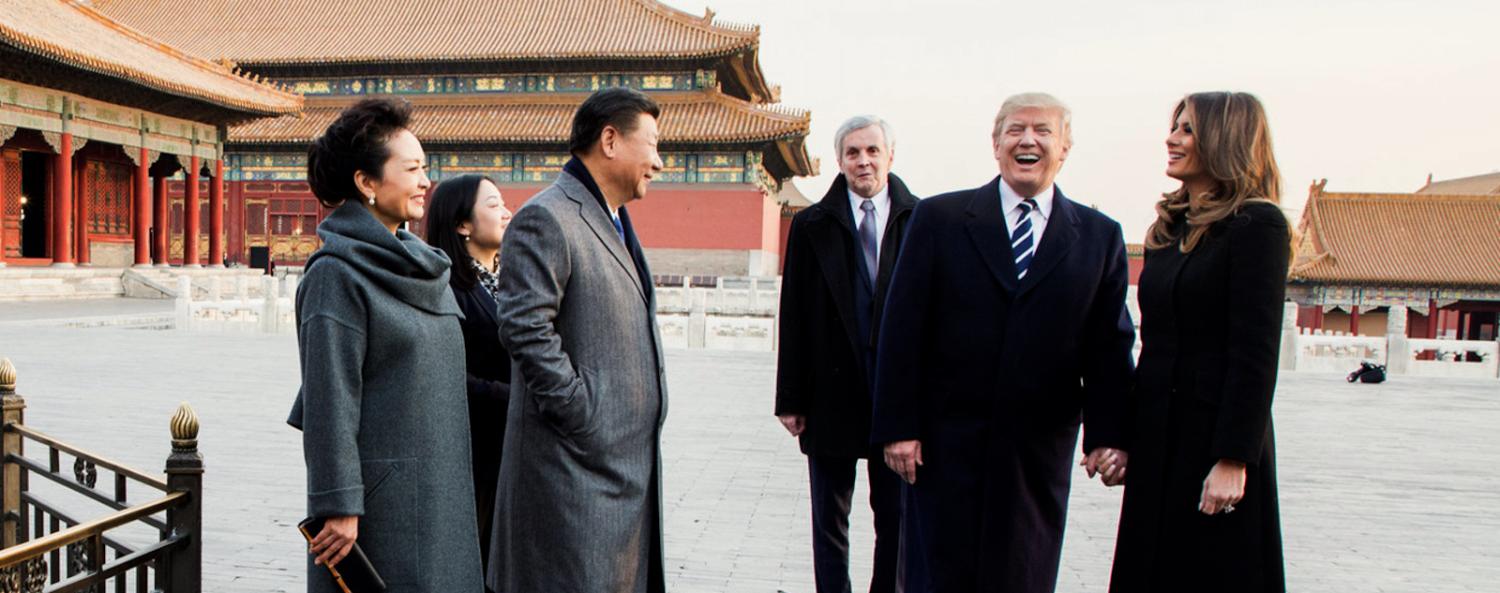The big story this weekend is the G20 Summit in Buenos Aires, Argentina.
How does US President Donald Trump’s “America First” policy threaten global economic governance? Stephen Grenville:
Trump’s rhetoric is a departure from the Bretton Woods ideals and his America First could do some damage at the margin. It is one thing to take America out of the TPP; it is another to use America’s heft to curtail other countries’ trade deals with third countries. If he collapses the WTO, by design or accident, a constraint on protectionism will be removed.
And Merriden Varrall argues that the bilateral trade stoush and multilateral progress on tax will likely be held hostage by the domestic politics of the US and China.
There has been considerable speculation in the lead-up to the summit around a meeting between US President Donald Trump and Chinese President Xi Jinping. A lot of hope rests on the two leaders being able to come to some agreement on trade, or at least, negotiate a suspension of tariff escalation that would allow negotiations to continue. Despite the hope, there is little reason to be optimistic that such a deal will be made, or, if it is, last long. The domestic political imperatives for each leader are at least as weighty as any economic logic.
Stuart Lau provides an excellent profile of a lesser known, but increasingly important, actor in Chinese politics.
Wang Qishan’s resume is incomparably enviable and successful. With his work efficiency widely recognised by successive leaderships, he enjoys the title ‘China’s firefighter’.
Jane Golley reviewes Leta Hong Fincher’s interesting book Betraying Big Brother: the Feminist Awakening in China.
Given the fact that China has been moving up on so many other measures, including GDP, GDP per capita, and educational attainments overall, these gender trends are all the more worrying. But as 2018 draws to a close, they are not all that surprising. Leta Hong Fincher’s latest book provides some cause for optimism in its depiction of a feminist awakening that is occurring in China, and particularly among a select group of urban, educated women.
In Quanzhou, China, an instructive stand-off between a journalist for Caixin and local police worked out in the journalist’s favour. Elaine Jeffreys:
The case highlights the increasing media-savviness of the central government while showing that not all media are created equal. Central authorities often allow local-level government corruption or inaction on environmental and other ‘crises’ to be exposed by provincial or national media or media in different regions. A by-product is that popular anger about public scandals or sensitive social issues may become trained on local authorities rather than the central government or CCP leadership.
And China’s economic partnership with Pakistan is facing security problems. The Chinese consulate in Karachi was attached by Baluchi separatists. David Brewster:
But in protecting people and assets, China may also increasingly find itself drawn into the local security affairs. This would represent a fundamentally new mission for Chinese security forces. Never before has China publicly contemplated using the PLA to protect Chinese citizens and assets beyond its borders. Importantly, there will also be a risk of mission creep.
Across the strait, Taiwan went to an election, which ended poorly for President Tsai Ing-wen and the ruling Democratic Progressive Party. Lauren Dickey:
The dramatic shift in the island’s electoral map following the local elections is not entirely new – and, indeed, something that can be discerned in prior elections. The DPP has struggled to fulfil some of its promises, including stimulating economic growth. Changes, such as pension cuts and reductions to public holidays, have further compounded public frustrations. The people of Taiwan made their disappointments known by voting in favour of change.
Back in Australia, sticking to the Morrison government’s suggestion of moving the Australian embassy in Israel has precedent in Tony Abbott’s shirtfrontasi approach on boat turnbacks. Ross Taylor:
Indonesian public opinion will also matter. The Israel Embassy issue would, unlike Abbott’s ‘turn back’ policy, be of more significant news in Indonesia. The president and the vast majority of Indonesia’s population hold the Palestine issue close to their hearts. With an election coming up in 2019 – where Jokowi will need the support of his own hard-right Islamist vote – if he was forced to damage Morrison to demonstrate his strength as a leader, he would reluctantly, but almost certainly, do it.
For something different, Morris Jones checks in on the growth of private interest in Asia’s nascent space race:
Space tourism has been little more than a sideshow in the commercial space arena. The real money is in practical applications such as communications and Earth observation. Thanks to such activities, private expenditure on spaceflight now outstrips that of governments. It was inevitable that Asia would follow this trend.
